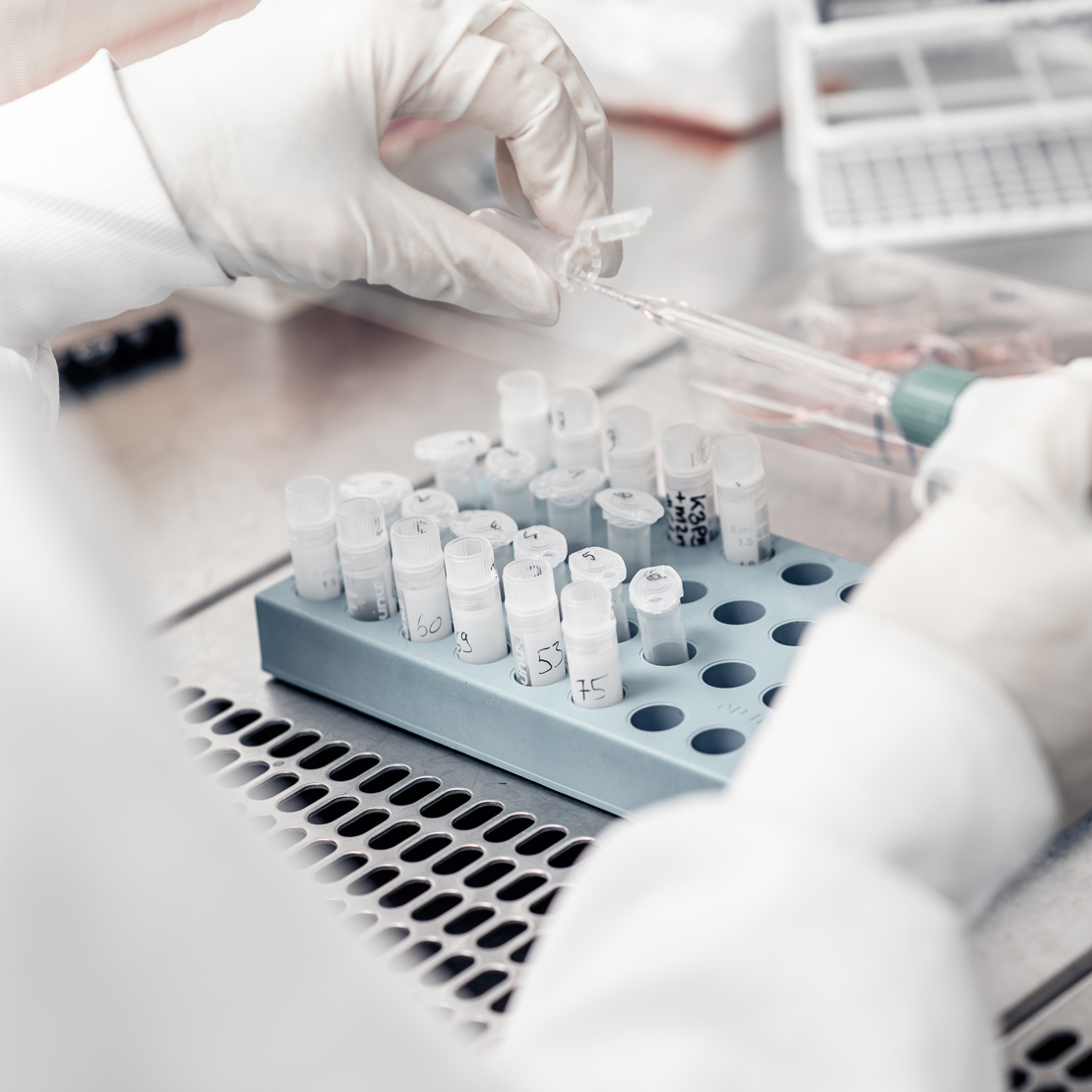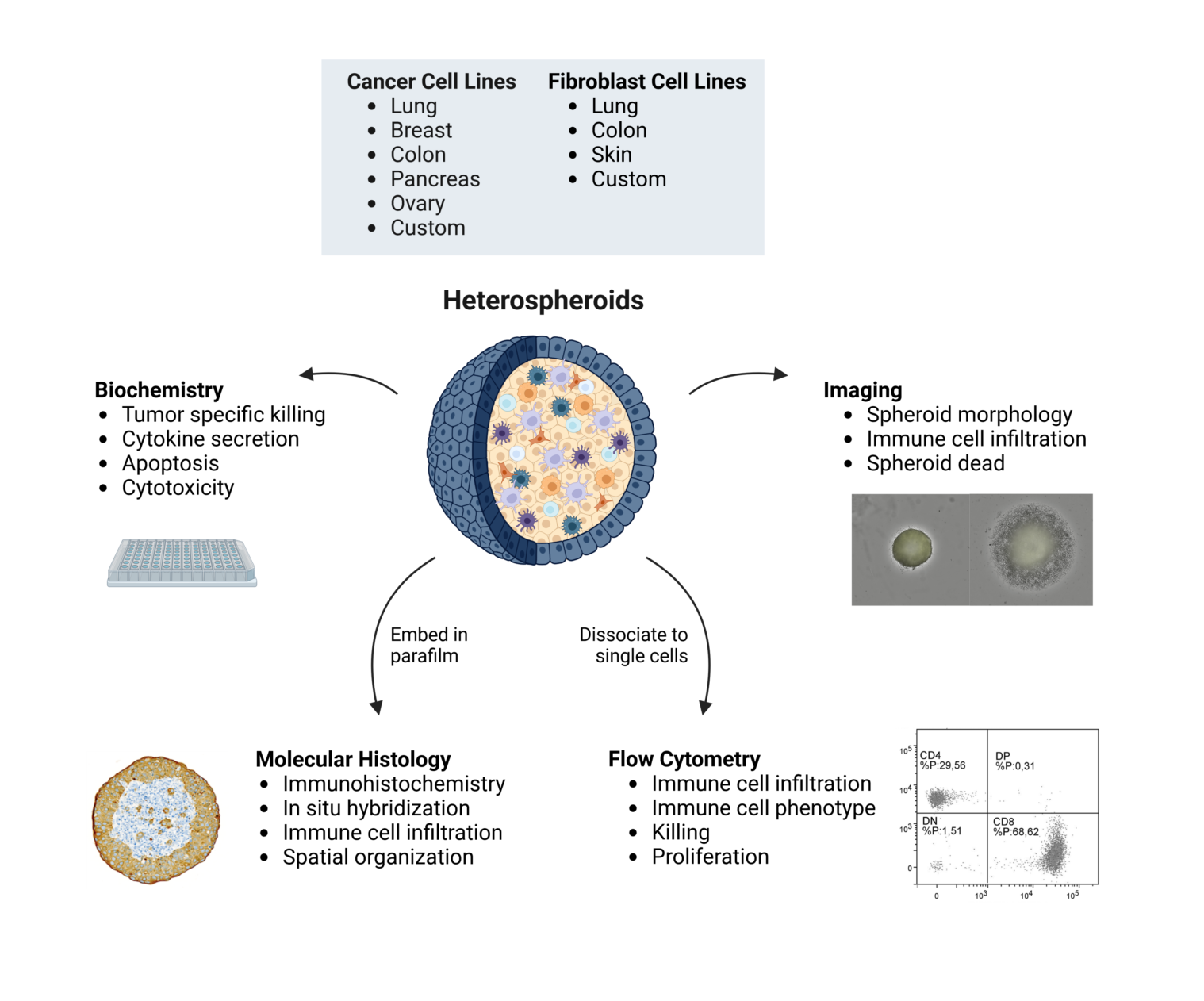In Vitro Modelling
Bioneer has extensive experience in developing advanced in vitro models and assays that replicate cellular or molecular aspects of diseases and in vivo conditions.
By leveraging state-of-the-art tools and technologies, such as human induced pluripotent stem cells (iPSCs), which can be differentiated into neuronal or immune cell types, alongside CRISPR genome engineering and high-content image analysis, we can generate high-quality data for your innovative CNS, immunology, or oncology projects. Our specialized BioSPHEER™ Advanced 3D Cancer Modelling Platform offers a range of pre-validated tumor models or can be custom-designed to assess your drug candidates, regardless of the drug modality.
Additionally, our gastric modelling services, utilizing the proprietary Dynamic Gastric Model (DGM) or our cell-based assays, enable comprehensive bioequivalence and permeability studies for your drug formulation.
Whether you represent a pharmaceutical company, a biotech firm, or an academic institution, we provide custom research solutions tailored to your specific needs.

Our services provide you with unique insights to target validation, lead evaluation, biomarker discovery, molecular profiling, bioavailability, and mode of action studies.
Our diverse team of scientists bring years of experience and an in-depth understanding of disease modelling to every project that can help you advance your drug discovery programs within:
Cancer and Immuno-Oncology
Bioneer is dedicated to creating innovative and comprehensive research solutions and tools for developing novel and effective treatments against cancer.
To support the early development of cancer therapeutics, Bioneer offers a range of human in vitro cancer models tailored for evaluating different drug modalities. With a particular focus on development of cancer drugs targeting solid tumours (e.g. breast, colon and pancreatic cancer) we have developed novel multicellular BioSPHEER ™ 3D cancer models with unique architectural organization. These novel BioSPHEER™ models are co-cultures with fibroblast cells, which support solid tumor-like spheroid formation and enable immune cell infiltration of the spheroids.
Together these features provide a more translatable tool compared to traditional models by creating an in vivo-like solid tumor microenvironment, making 3D models a valuable tool for both target validation and lead evaluation. Our state-of-the-art technology platforms and supplementary methodologies generate data for the development and evaluation of different drug modalities including e.g. small molecules, peptides, therapeutic antibodies, gene and cell-based therapies.

Immunology
We provide a broad range of services, support and custom-made assays within immunology, at all levels from basic research and early discovery to clinical sample evaluation.
Whether you are exploring novel immunotherapies, working with immune-oncology, investigating immune responses to pathogens, or unraveling the complexities of autoimmune diseases, we are here to support your endeavors. From biomarker discovery to immune profiling, our customizable solutions provide key insights and drive impactful discoveries about the potential of your drug candidates.
Our long-standing experience in immunology has been the key driver to establish a broad range of high quality in vitro immune model assays.
CNS
We develop CNS models based on iPS cell lines and immortalized cell lines. Our team use gene editing, neural differentiation technologies and image-based screening to develop models that mimic CNS diseases like Alzheimer’s Disease and Parkinson’s Disease.
We understand the complexity of CNS in vitro modelling, and we can custom design or tailor CNS models to fit your purpose.
Our typical work flow for developing CNS models is:
- Gene editing and Reprogramming
- Differentiation to neuronal subtypes relevant for the CNS disease of interest
- CNS assay development powered by Bioneer’s High Content Imaging Platform
We have a wide variety of state-of-the-art equipment for development of CNS assays.
- High Content Imaging (ImageXpress Micro Confocal High-Content Imaging System Molecular Biodevices)
- MEA for electrophysiologic analysis (MEA High Density Microarray)
- High-throughput flow cytometry analysis (BD FACS Lyric)
- Advanced molecular analytical tools
We have established a collection of neurodegenerative disease models, such as a variety of related knock-in models with disease specific familiar and risk factor mutations (e.g. Alzheimer’s, Frontotemporal dementia) and iPSC derived blood-brain-barrier models.
We are constantly developing our CNS modelling skills and would be happy to share the latest updates.
For further information, please contact Director of Business Development, Dale Shelton, PhD by phone or email.
Our typical work flow for developing CNS models is:
- Gene editing and Reprogramming
- Differentiation to neuronal subtypes relevant for the CNS disease of interest
- CNS assay development powered by Bioneer’s High Content Imaging Platform
We have a wide variety of state-of-the-art equipment for development of CNS assays.
- High Content Imaging (ImageXpress Micro Confocal High-Content Imaging System Molecular Biodevices)
- MEA for electrophysiologic analysis (MEA High Density Microarray)
- High-throughput flow cytometry analysis (BD FACS Lyric)
- Advanced molecular analytical tools
We have established a collection of neurodegenerative disease models, such as a variety of related knock-in models with disease specific familiar and risk factor mutations (e.g. Alzheimer’s, Frontotemporal dementia) and iPSC derived blood-brain-barrier models.
We are constantly developing our CNS modelling skills and would be happy to share the latest updates.
For further information, please contact Director of Business Development, Dale Shelton, PhD by phone or email.
For further information
please contact:

